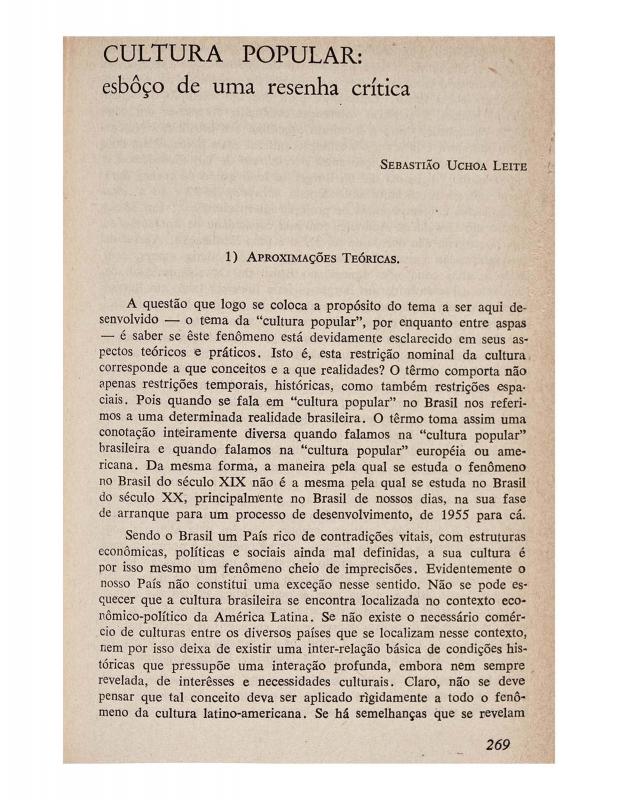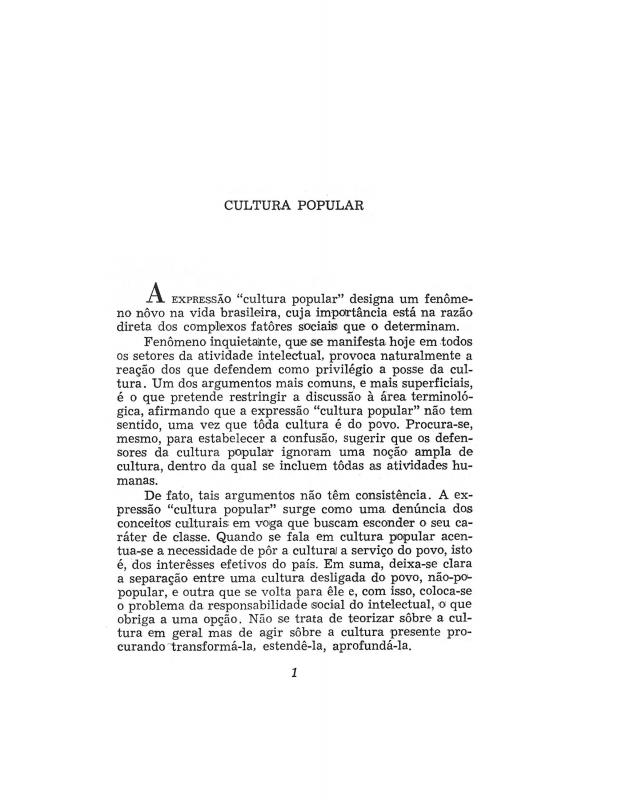The first Centro Popular de Cultura (CPC) started in Rio de Janeiro as part of the União Nacional dos Estudantes (UNE). It opened in 1961, at the beginning of the brief term of President João Goulart (1961-64). The CPC was a gathering place for artists and intellectuals working in theater, dance, film, literature, and the visual arts who were dedicated to social transformation through socially committed art bound to the people. Though short-lived because of the CIA-backed military coup that took place in 1964, the original CPC inspired the creation of similar organizations throughout Brazil; the pedagogical aims of those organizations included the popularization of artistic practices and production.
This draft of the manifesto was composed jointly by members of the CPC and sociologist Carlos Estevam Martins, director of the CPC in Rio de Janeiro at the time. It was used to raise political consciousness in a number of similar organizations around Brazil. Regardless, some members of the CPC, mostly those who defended the need to delve into “aesthetic” debates beyond a strictly national-popular vision of culture, reacted negatively to this text.
For additional texts on this topic, see Sebastião Uchoa Leite’s “Cultura popular” (doc. no. 1110365) and Ferreira Gullar’s “Cultura posta em questão” (doc. no. 1110364).


